CBC
Mon, November 20, 2023
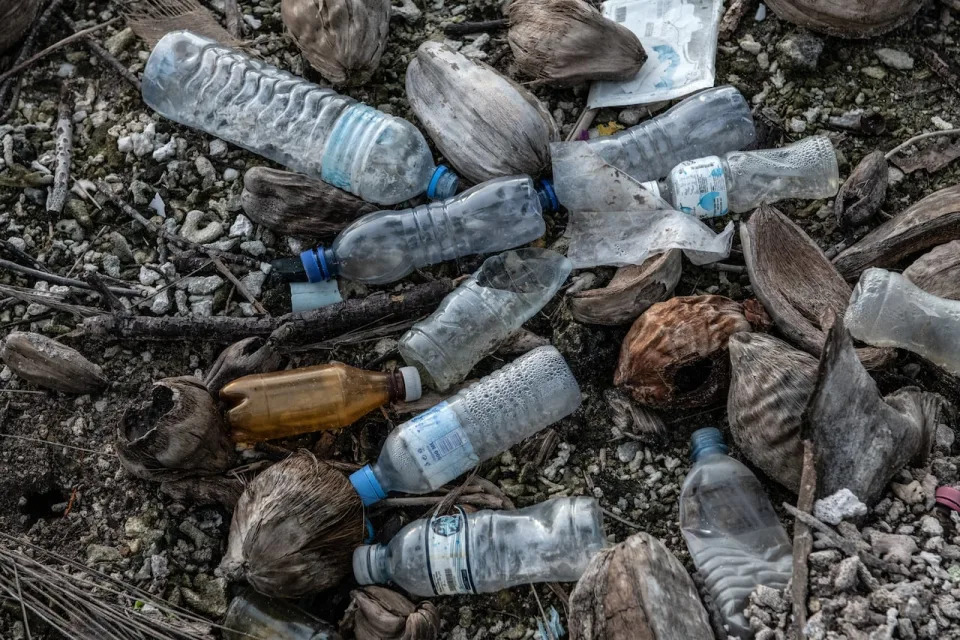
The federal government is only able to regulate substances for environmental protection if they are listed as toxic under the Canadian Environmental Protection Act. (Carl Court/Getty Images - image credit)
The federal government is planning to appeal a court decision that quashed an order-in-council listing manufactured plastic items as toxic.
Last week, a Federal Court judge ruled that the government's move to list all plastic items as toxic was "unreasonable and unconstitutional."
Environment Minister Steven Guilbeault and Justice Minister Arif Virani announced the government's intention to appeal in a joint statement on Monday.
"Our government intends to appeal the Federal Court's decision and we are exploring all options to continue leading the fight against plastic pollution," the statement says.
The move to list plastic items as toxic was a key step that allowed Ottawa to proceed with a ban on six single-use plastic items, including straws and shopping bags.
In her ruling released Thursday, Justice Angela Furlanetto wrote that the category of plastic manufactured items was too broad to be given a blanket toxicity label under federal law.
"There is no reasonable apprehension that all listed [plastic manufactured items] are harmful," Furlanetto wrote.
Speaking during an unrelated press conference on Monday, Guilbeault said the impact plastic waste has on the environment and human health is "undebatable."
"We will continue with our strategy to fight plastic pollution. We want to get plastic out of our environment, out of our neighbourhoods," he said.
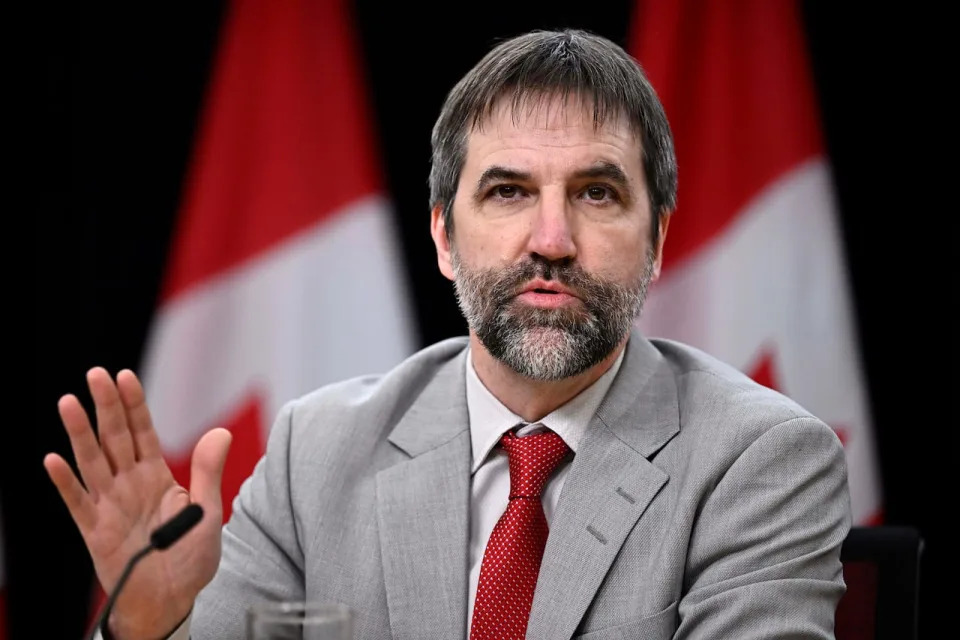
Minister of Environment and Climate Change Steven Guilbeault speaks during a news conference on the implementation of stricter measures to regulate the trade of certain wildlife items, particularly elephant ivory and rhinoceros horn, in Ottawa, on Monday, Nov. 20, 2023.
Minister of Environment and Climate Change Steven Guilbeault speaks during a news conference on the implementation of stricter measures to regulate the trade of certain wildlife items, particularly elephant ivory and rhinoceros horn, in Ottawa, on Monday, Nov. 20, 2023. (Justin Tang/The Canadian Press)
Regulating waste management is generally a provincial responsibility. The government is only able to regulate substances for environmental protection if they are listed as toxic under the Canadian Environmental Protection Act.
Furlanetto wrote that Ottawa's decision "poses a threat to the balance of federalism" because it didn't restrict its regulations to those plastics that have "potential to cause harm to the environment."
The Alberta government was an intervener on the case. On Thursday, Alberta Premier Danielle Smith and her Environment Minister Rebecca Schulz urged Ottawa not to appeal Furlanetto's decision.
The case was brought forward by a group of major industrial players in plastics, including Dow Chemical, Imperial Oil and Nova Chemicals. They argued that Ottawa failed to demonstrate it had enough scientific evidence to justify the regulations.
P.E.I. to move forward with expanding its own plastics ban, says minister
CBC
Mon, November 20, 2023 at 3:00 a.m. MST·3 min read
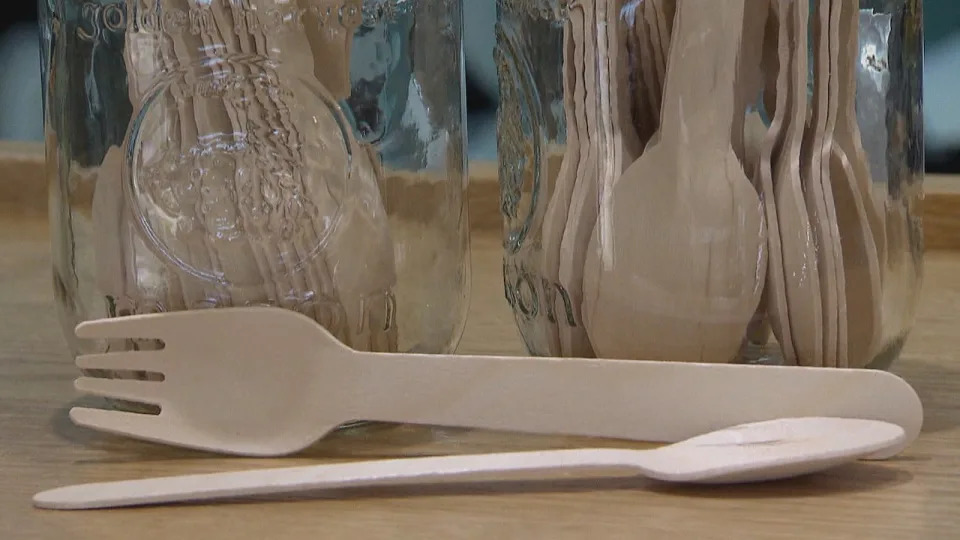
Might wooden cutlery be in P.E.I.'s future? Environment Minister Steven Myers says he's ready to push ahead with banning more kinds of single-use plastics. (CBC - image credit)
P.E.I.'s environment minister says the province will look to expand its own single-use plastics ban now that a Federal Court of Canada judge has ruled a ban Ottawa planned to impose was "unreasonable and unconstitutional."
Prince Edward Island was the first province in Canada to ban single-use plastic bags, with a law that came into effect in July 2019.
Since then, Steven Myers said Friday, the province has been in a "holding pattern" after the federal government said it would take the lead on further reductions in single-use plastics.
In the aftermath of Thursday's ruling by Federal Court Justice Angela Furlanetto, the environment minister told the legislature P.E.I. can build "a model of sustainability for Islanders that can be mimicked across Canada.... We intend to be leaders in everything that we do on an environmental profile and we're going to look at doing something in this realm."
The Trudeau government had planned to ban the sale of single-use plastic shopping bags, cutlery, food service ware, stir sticks and straws after Dec. 20.
In order to have the power to do that, the federal government had listed the items as "toxic."
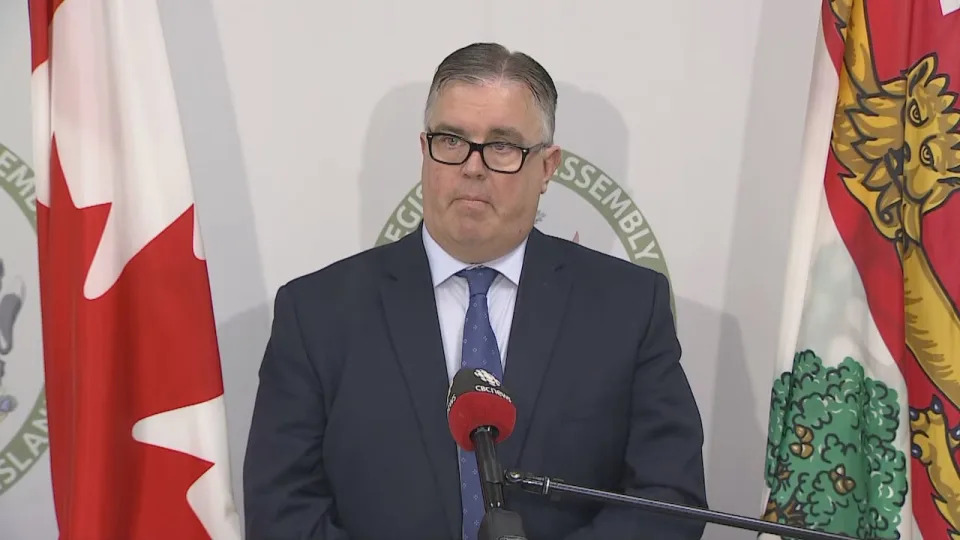
Environment Minister Steven Myers said the government will hold public consultations before expanding P.E.I.'s plastic bag ban.
Environment Minister Steven Myers said the government will hold public consultations before expanding P.E.I.'s plastic bag ban. (Aaron Adetuyi/CBC)
That led to a court challenge by a group of major industrial players in plastics, including Dow Chemical, Imperial Oil and Nova Chemicals. They argued that Ottawa had failed to demonstrate it had enough scientific evidence to justify the regulations.
'I'm talking about lifetimes and generations'
On P.E.I., Myers said he's seeking advice as to whether the province's longstanding plastic bag ban would survive a legal challenge if manufacturers launched one based on Furlanetto's ruling, which the federal government will seek to appeal in front of the Supreme Court of Canada.
Ashley Wallis is associate director of Environmental Defence, which was an intervenor in the federal case. On Monday, she said P.E.I.'s ban shouldn't be in extra jeopardy because of the Federal Court decision.
"This [federal] case doesn't really speak to provincial jurisdiction to implement bans on specific products or product categories," Wallis said, adding that because of the Trudeau government's ban being delayed, "There's a real gap here and an opportunity for provinces and municipalities to kind of step up in the interim."
Born 15 years ago
The P.E.I. bag ban was brought forward in a private member's bill introduced by former Liberal MLA Allen Roach in 2018.
As for expanding it to include other single-use plastic items, Myers said the province intends to move quickly but will hold public consultations.
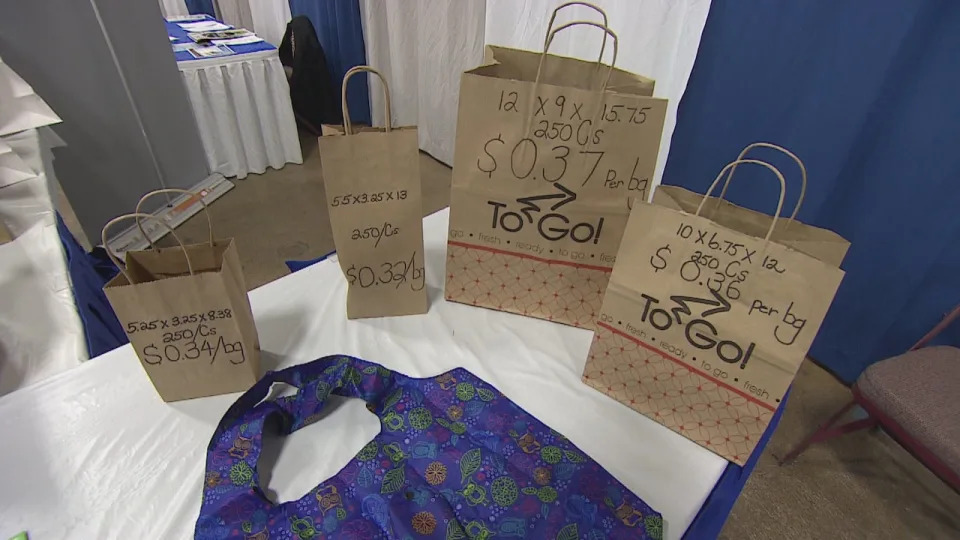
Green says how to store the paper and reusable bags is one of the biggest challenges facing many P.E.I. businesses because the plastic bags took up less space.
Island businesses started packing people's purchases into paper and reusable bags after the plastic bag ban took effect on July 1, 2019. (Shane Hennessey/CBC)
"I hear a lot of complaints about the paper straws and I would say they're probably less than adequate when it comes to straws," the environment minister told reporters Friday.
"But I think at the same time we have to have some recognition that the things that we use have further impacts that are outside of our lives…I'm not talking about 10 years or five years, I'm talking about lifetimes and generations.
"I know eating with a wooden fork isn't as good as eating with a plastic fork, but if that's the inconvenience that you're going to be stuck with, I'm okay with delivering that."
Progressive Conservative backbench MLA Zack Bell raised the issue of the ban in the legislature Friday.
He said while many Islanders support banning single-use plastics, "critics say the replacement products are of a lesser quality, they pose difficulties for seniors and people who are not able-bodied, and they also add extra costs for businesses here on the Island."
No comments:
Post a Comment